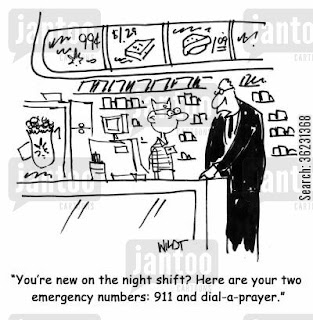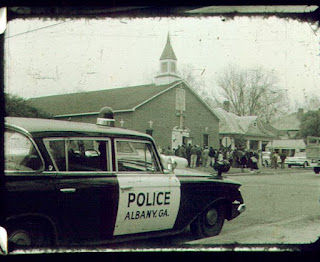CHRIST IN WINTER:
Reflections on Faith & Life for the Years of Winter
[Okay, these aren’t all
about getting old, but I’ve collected them and don’t want them to go to waste…]
“Comfort is the enemy of progress.”
So… progress is overrated.
I see the world with the
same clear vision with which I have always viewed it, but the world looks back
at me with the misty, wrinkled eyes of irrelevance. JRMcF
Life is like a helicopter.
I don’t know how to operate a helicopter, either.
I thought getting old
would take longer.
“Jesus was not a
theologian. He was God who told stories.” Madeline L’Engle, quoting an
anonymous friend. P. 54, Walking on Water
“…you had but one job…” as
the joke goes. At my age, I have but one job, to get ready to die, by
discarding all the unnecessary stuff--from my spirit, from my body, from my
relationships, from my possessions.
Actually, that’s the one job at any age. I sort of wish I
had understood that better, earlier.
“Unexplained pain may
sometimes direct our attention to something unacknowledged, something we are
afraid to know or feel.” Rachel Remen
“The Son of God suffered
unto death, not that men might not suffer, but that their suffering might be
like his.” George MacDonald
“Those who believe they
believe in God but without passion in the heart, without anguish of mind,
without uncertainty, without doubt, and even at times without despair, believe
only in the idea of God, not in God himself.” Unamuno
“I am tired of having the
front of my mind tickled.” Leslie Tizzard, on superficial preaching.
‘Man’s capacity for
justice makes democracy possible, but man’s inclination to injustice makes
democracy necessary.” Reinhold Niebuhr
“Christ saves many who do
not think they know him.” CS Lewis
“A grumbler may finally
become a grumble.” CS Lewis
“If you want to teach
children to love God, teach them to love nature.” Anne Lamott
I am often nostalgic for
times that never were. JRMcF
“I was born to reject
rejection.” Hal David
“The pre-Easter Jesus is
St. Francis with an exclamation point.” Marcus Borg
The surest way to be
irrelevant tomorrow is to be too relevant today.
“Until I tell God what I
want, I have no way of knowing if I truly want it.” Madeline L’Engle
“The holy scriptures were
not given to us to enclose them in books but to engrave them on our hearts.”
St. John Chrysostom
“We cannot easily give our
hearts to something that our minds reject.” Marcus Borg
“Evangelism is one beggar
telling another beggar where to find food.” D.T. Niles
“When old men become
irrelevant, young men become irresponsible.”
“God contains everything
and nothing contains God.” Irenaeus
“Sometimes all that is
needed is the sense of possibility.” Rachel Remen, MD
“People are zealous for a
cause when they’re not quite positive it is true.” Madeline L’Engle
“Moving into the unknown
is often where we find the healing.” Dean Ornish
“Only in poetry is a word
that means only one thing dysfunctional.” Billy Collins
johnrobertmcfarland@gmail.com




































